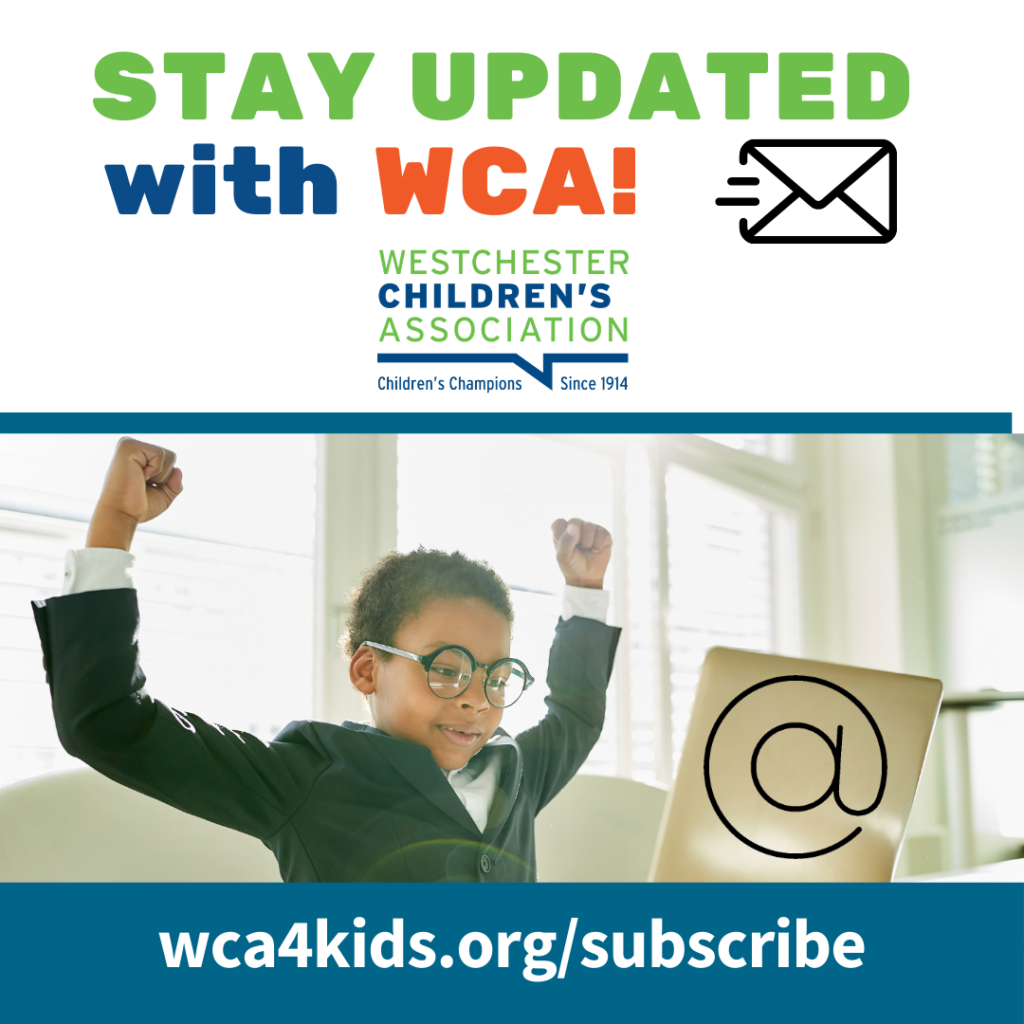After weeks of intense negotiations, New York State has enacted a final budget for FY 2023. Historic investments have been made to address emergent and recurring issues, moving our state in a direction that further supports some of Westchester’s most vulnerable children, youth, and families. While the Budget designates major funding for childcare and education, it falls short in investments that support kinship families, keep children out of foster care, or expand the Child Tax Credit.
We need to keep the pressure on.
Child Poverty
For too long, New York has allowed thousands of children to endure the hardships of poverty – in times of recession and of plenty. As the pandemic continues to increase the rate of child poverty, the 2023 New York State budget falls short of expanding the Child Tax Credit (CTC) to cover families with children under the age of four. New York cannot transform child poverty rates without adequate funding under the Child Tax Credit, and we must hold elected officials accountable for implementing strategies and the Child Poverty Reduction Advisory Council that will cut child poverty rates in half by 2030.
However, the State Budget does include:
- A one-time, supplemental Child Tax Credit alongside the current CTC for the 2021 tax year for families with children between ages 4 and 7.
Child Care, Afterschool, and Youth Development
Foundational wins towards developing a universal system that provides access to affordable, quality child care and substantial compensation for providers have been highlighted in the 2023 New York State budget by:
- Investing $7 billion for affordable quality childcare over the next 4 years.
- Increasing the income eligibility threshold for child care subsidies to 300% of the federal poverty line – i.e. $83,250 for a family of four and $54,930 for a family of two.
- Investing $343 million in stabilization grants that will be distributed immediately, with 75% of the funds to be used for “workforce initiatives.”
- Capping copays for families with incomes less than 300% of the federal poverty level to 10% of income over the federal poverty level beginning in August 2022.
- Increasing the child care market rate to include 80% of providers broadening child care options available to subsidized families while also increasing reimbursement rates for childcare providers.
- Investing $125 million for Universal Pre-K, generating 15,000 additional slots for children who are 4 years of age.
Early Childhood Supports and Home Visiting
Maternal, infant, and early childhood home visiting (MIECHV) programs are gaining both political support and funding as they assist expectant and new parents while also screening young children for poor outcomes. While specific investments have not yet been made in the targeted programs outlined in our advocacy goals, such as Healthy Families New York and Parent Child+, the 2023 New York State budget does include:
- Over $20 million in annual investments to expand access to holistic prenatal and postnatal care.
- An increase in postpartum Medicaid coverage from 60 days after birth to 12 months after birth.
Youth Justice: Raise the Age
Despite last-minute efforts to roll back the historic reforms under Raise the Age laws, New York State legislators reached an agreement that would preserve the age of prosecution at 18 years, while also:
- Closing the “Raise the Age loophole” by providing Family Court jurisdiction over cases where 16 and 17-year-olds are charged with an offense, but not arraigned until they are 18 by expanding the statute of limitations to a young person’s 20th
- Including $250 million in appropriation to support state and local costs for comprehensive programs including diversion, probation, and other programming services for 16 and 17-year-old justice-involved youth.
- Requiring courts to provide referrals to programs and services for juveniles who are being released.
Mental Health:
As the need for mental health and addiction-related services continues to expand, increased investment in mental hygiene at the state level will provide greater resources for more individuals. Specifically, next year’s State Budget will:
- Invest an additional $7.5 million in Residential Treatment Facilities (RTFs) for children.
- Expand the Child Health Plus benefit package to include certain services covered by Medicaid, including behavioral health services.
- Utilize the Healthy Steps initiative to continue to incorporate behavioral health services into pediatric primary care visits, bolstering mental health services for children and families.
Child Welfare:
State leaders missed an opportunity to support communities that lack needed resources to strengthen families and reduce the number of children placed in foster care in the 2023 State Budget. Low-income households in our state will continue to face obstacles since the final budget failed to fund the 65% required in statute for state child welfare services, Kinship Guardianship Assistance Program (KinGAP) independent of the Foster Care Block Grant (FCBG), and no increased investment was made to raise foster parent reimbursement rates.
To ensure that Westchester’s children and youth are healthy, safe, and prepared for life’s challenges, New York State must begin rebuilding a system with healthy connections, quality, and equity at its core as we further support children and youth to reach their full potential.
[ DOWNLOAD WCA’S WRITTEN TESTIMONY HERE]
See Allison’s testimony in a Facebook live recording. [Skip to 2:04:00]
WCA supports the 2022 agendas of many coalitions and partners, including CHAMPS NY, Child Care Council of Westchester, Citizens’ Committee for Children of New York, Fostering Youth Success Alliance, New York State Child Welfare Coalition, NY State Network for Youth Success, Prevent Child Abuse New York, Raise the Age NY Campaign, Schuyler Center for Analysis & Advocacy, Nonprofit Westchester and Westchester Women’s Agenda which include many of the priorities outlined above.
See other articles in WCA eBulletin #24
- Community Snapshots for 2022 have been released
- 2022 Spring Benefit on June 1st
Subscribe to see how you can help Westchester’s kids!


